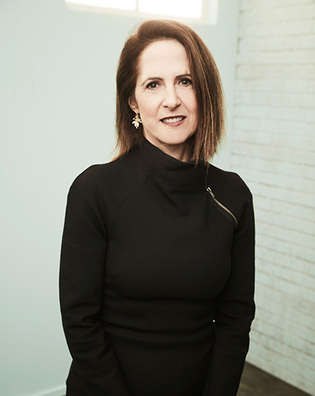 loading
loading
Where They Are NowRevisiting the Vietnam WarLynn Novick ’83 and longtime collaborator Ken Burns launch a series on the conflict “no one talked about.” Teresa Wiltz is an award-winning journalist who lives in Washington, DC.
 Maarten de Boer/Contour by Getty ImagesDocumentary filmmaker Lynn Novick ’83 and her long-term creative partner, Ken Burns, are behind the 18-hour documentary on the Vietnam War airing on PBS in September. Novick and Burns have spent ten years on the project, and, says Novick, “Every day was a surprise.” View full imageFor nearly 30 years, documentary filmmaker Lynn Novick ’83, an Emmy and Peabody Award winner, has been delving into the crannies of US history, trying to make sense of the complexities of American culture: Prohibition, baseball, jazz, World War II. Now—together with her long-term creative partner, Ken Burns—she is taking on one of the most divisive events of the twentieth century. Ten years in the making, The Vietnam War is a sprawling 10-episode, 18-hour treatment of what Novick calls “an epic tragedy,” told from the perspective of nearly 100 witnesses from all sides of the war. It airs in September on PBS. Y: Why Vietnam, why now? N: The Vietnam War is one of the most consequential events in American history. It’s also the most divisive and polarizing and traumatic. And so it felt to us—to Ken and me, it really was a festering wound. It’s kind of working on us in ways that we’re not aware of, below the surface. And the way to deal with that is to find out what happened. Y: You were a kid during the Vietnam War. How did your experience growing up, watching the clips on the evening news, shape you and the film? N: I always felt that it was this extraordinarily important and very serious thing that was happening. And that the adults were very concerned about it and that it was not going well. And then when it ended, no one talked about it. Looking back later, I realized this extraordinarily painful event happened and I just didn’t understand it. I became quite obsessed. But I was never able to put the pieces together until I got to work on the film. Y: Given all that, what surprised you the most, working on the film? N: I realized how little I actually knew about it. There were these mythic stereotypes about it, clichés, but the reality was much more complicated. The complex moral choices people were faced with in the US, the scale of tragedy in Vietnam, and the complexities of the winning side and the losing side in Vietnam. Every day was a surprise. Y: You were an American studies major at Yale. How did that inform you? Do you consider yourself a historian—or a journalist? N: I’m not a historian in the traditional sense. The films I’ve made with Ken—we’ve tried to make history a story. What I loved about American studies is you can’t just be in the history silo, or the literature silo. To understand history, you’ve got to understand culture, and everything in between. American studies helped me develop a sense of visual storytelling. I took a wonderful seminar on the history of photography, film appreciation classes, even a politics class. The other driving force of that department at the time was that the lives of ordinary people matter. That is a pretty profound concept. Because history could just be the stories of great white men. The sense that what happened to an ordinary soldier or a bootlegger or a baseball player or a jazz musician—what their life was like and what they have to say about it—could matter, has driven the work that Ken and I have done. Y: What is the role of documentarians in this era of fake news? N: I taught documentaries in prison. One of the central questions was, “What is true? What is a fact?” These are profound questions: is documentary filmmaking journalism? Is it art? Is it storytelling? There is so much fluidity under that name. I don’t want to speak for all documentary filmmakers. It’s not like journalism, where you have a code of conduct and rules. Docs can be a lot looser. We try very hard to find the facts, we fact-check over and over again. But you have to sift and distill and boil down and impose a narrative on the chaos of history and life.
The comment period has expired.
|
|